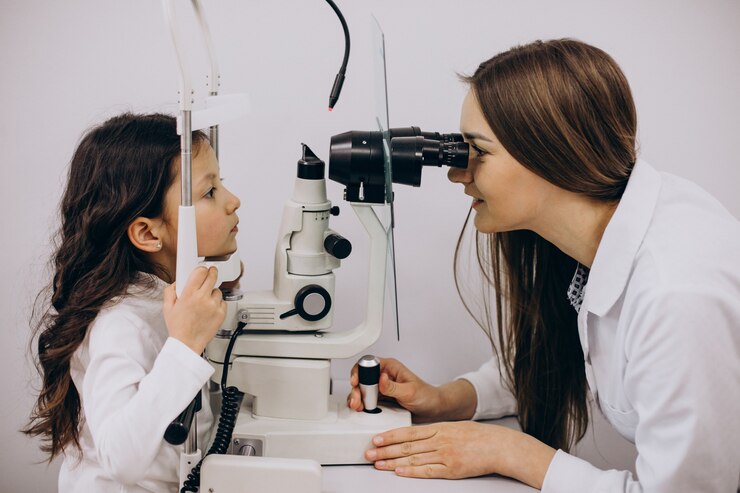

By Larry Carr
Oct 19, 2023
An ophthalmic scribe is an indispensable member of the medical team that specializes in eye and vision care. Ophthalmology scribes are specifically trained to assist ophthalmologists in documenting patient encounters and maintaining medical records. This way they help streamline the documentation process and clinical workflow, allowing ophthalmologists to focus entirely on treating patients with vision-related problems. In short, using ophthalmology scribes can help take your practice to the next level – increasing efficiency, productivity, revenue and patient satisfaction.
What experience does an ophthalmic medical scribe need?
The most basic requirement for being an ophthalmic medical scribe is a high school diploma. However, a college degree is preferable by some employers. A minimum of 1-2 years of prior experience in healthcare documentation is a mandatory requirement. Having completed training that covers topics such as medical terminology, HIPAA regulations, medical coding, clinical and documentation standards examination would definitely be a plus, but not a requirement. Similarly, certifications are not a requirement for an ophthalmic role, but having one gives you a competitive edge and makes you appealing to employers.
What is the role of an ophthalmic scribe?
An ophthalmic scribe plays a crucial role in an ophthalmology practice by providing a wide range of services that help ophthalmologists run their practice smoothly and efficiently.
Documentation: Ophthalmic scribing involves accurately documenting patient histories, symptoms, examination findings, diagnoses, treatment plans, and other relevant information during the patient’s appointments. This ensures accurate and up-to-date medical records.
Data Entry: Entering information into electronic health records (EHR) systems, ensuring completeness and accuracy.
Assisting providers: Preparing examination rooms, accompanying the physician during patient visits, and documenting the physician’s observations and instructions.
Billing and Coding: Assigning appropriate medical codes to procedures and services for accurate billing and reimbursement purposes.
Managing Records: Organizing and maintaining patient medical records, test results, and other relevant documents.
Patient Education: Providing patients with basic information about procedures, treatments, and post-operative care.
Compliance: Ensuring that documentation and practices adhere to legal and regulatory requirements, as well as the ophthalmic clinic’s policies.
Privacy and Security: Safeguarding patient information and maintaining confidentiality in accordance with healthcare privacy laws.
Technological Proficiency: Familiarity with EHR systems, medical terminology, and ophthalmic equipment.
How does an ophthalmology scribe take your practice to the next level?
By taking on the note taking and documentation tasks ophthalmic scribes help improve the overall function and quality of an ophthalmic practice. They document patient encounters in real-time, allowing ophthalmologists to fully engage with the patient, improving quality of care and health outcomes. Scribes also allow for increased patient volume in ophthalmic practices and physician productivity because they decrease encounter time with individual patients. In this way, ophthalmology scribes play a crucial role in maximizing efficiency and maintaining a stable net revenue in the highly regulated and ever- changing healthcare industry. More and more ophthalmic practices are opting to use scribes to reduce documentation workload and streamline clinical workflow, thus enhancing physician well-being and improving healthcare delivery.
Ophthalmic scribes have emerged as a tactic to ease the stress of practicing modern medicine. If you are on the lookout for a certified ophthalmology medical scribe then look no further than Scribe4Me We have a pool of highly skilled remote scribes who have a thorough understanding of medical terminology, processes and procedures specific to ophthalmic practices to ensure accurate charting. Well, if you have any questions on how our ophthalmology virtual medical scribes can improve your eye care team workflow and take your practice to the next level give us a call at (908)736-4180.

Please fill out this form.
We will reach out to you within 24 hours
Documentation is an important daily clinical responsibility. In order to optimize patient care, physicians are always on the lookout for new ways to effectively and efficiently document patient visits.
The use of virtual medical scribes has become increasingly popular in the recent years, as medical practices across the country are on the constant lookout for ways to reduce clinical documentation overload, thereby improving overall productivity.
The clerical burden associated with EHR usage is attributed as the number one cause of physician burnout. We also know that physicians spend twice as much time on EHRs and other clerical tasks compared to the time providing patient care.